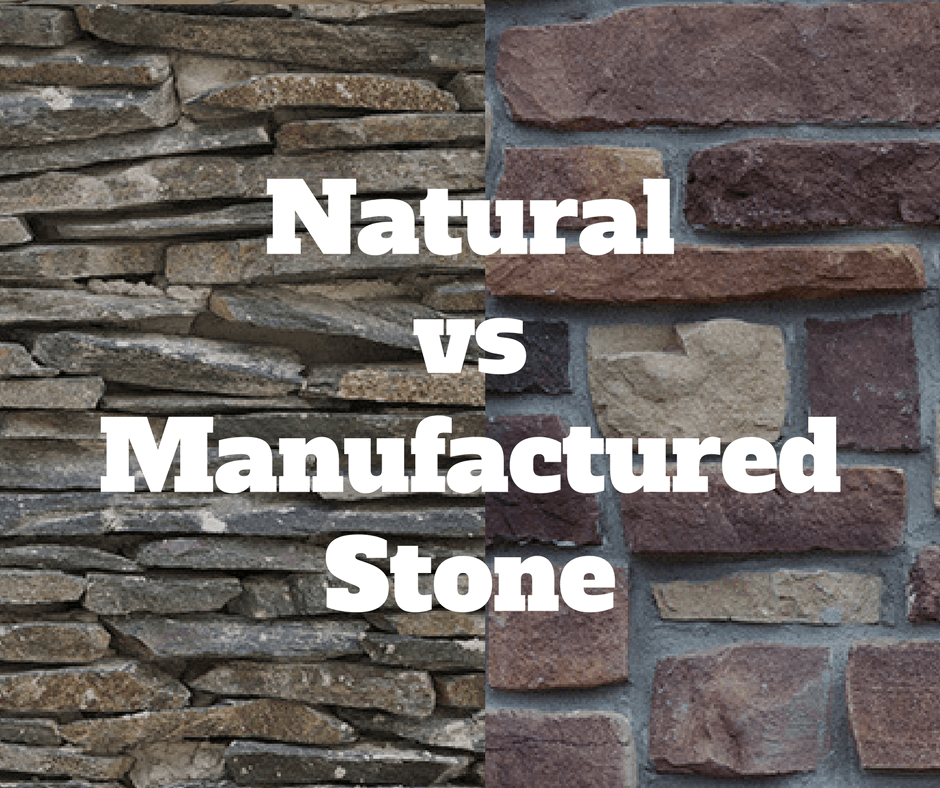As a company specializing in custom hardscapes, NOVA Landscape and Design does a great deal of stonework for Northern Virginia homeowners. One decision that typically comes up in the design process is whether to use natural or manufactured stone. Our team has a wealth of experience working with both options, and either of them will add a natural look, texture, and dimensionality to your landscape. The conversation, then, revolves around weighing the pros and cons of each. Here, from our perspective, are the benefits and drawbacks of using natural stone vs. manufactured stone in your landscaping project.
The Benefits of Natural Stone
Stone is one of the oldest construction materials known to man. It’s durable, wind, water, and fire resistant, and abundantly available. For many reasons, it’s the first option to be requested by many homeowners. Still, we recommend taking a circumspect view and considering the benefits and drawbacks of natural stone before making a final decision.
It lasts forever.
You’ve seen erosion. It takes thousands, if not millions, of years to break down boulders in a meaningful way. When you build or finish hardscape elements with natural stone, they can handle any weather or wear you can throw at them, and they’ll still maintain their color, texture, and integrity for years to come.
It’s the real deal.
Natural stone will never go out of style. It’s an expression of the Earth, masterfully incorporated into your property. If done well, stonemasonry will add value to your home and garner the admiration of all who take the time to look at your outdoor space. For some, natural stone is the only way to go.
It’s green.
Genuine stone is considered a smart and sustainable green building material. There is no fabrication cost involved, no chemicals are used in its production, and it can be easily reclaimed and repurposed. When used locally, the carbon footprint of natural stone can be kept to a minimum.
The Drawbacks of Natural Stone
Cost
Natural stone is just that – beautiful, rugged, and a natural part of any environment. That said, it has to be quarried, transported, and then moved around at the installation site. Since stone is heavy, the costs associated with those tasks are high. Should you choose a rare or far-flung type or color of stone, those factors will impact your budget as well.
Installation
Incorporating natural stone into a landscape demands a different skill set than does installing a fabricated product. Natural stone pieces must be carefully shaped, and building with them is a nuanced form of craftsmanship. Creating beautiful hardscapes from natural stone requires a great deal of experience and must be done by a highly skilled professional. The timeline for a natural stone project is very likely to be longer than one in which cast stone is used.
The Benefits of Manufactured Stone
It’s important to realize that manufactured stone opens up a universe of possibilities beyond what’s possible with natural stone. It’s light, affordable, and available in a virtually endless array of colors and patterns. Manmade or cast stone can give you the appearance, durability, and other benefits of natural stone, without the heavy lifting and associated price tag.
Color Choices
Natural variations in color and texture can be beautiful in the wild but sometimes don’t flow as well in an engineered landscape. The pigmentation process applied to manufactured stone renders a virtually endless array of color and style options. If you’re going for a very specific or precise look, it will be much easier to achieve using manmade stone finishes.
Cost
Though the price of premium cast stone can be right up there with natural options, it’s typically a great deal cheaper to go manufactured. Even if your materials cost isn’t lower – and it likely will be — labor costs can be expected to decrease with fabricated materials.
Ease of Installation
Manufactured stone is engineered to be used in hardscaping projects, so it’s full of features that make installation quick, easy, and secure. Its lightness and landscape friendly design elements make it more versatile than natural stone, and it’s much easier to secure, especially to vertical surfaces.
The Drawbacks of Manufactured Stone
Longevity
Though it’s formulated to be durable, manufactured stone is not an amalgamation of minerals honed in the Earth’s crust over millennia. For that reason, it’s more likely to crack or lose its color than its natural counterpart. The results you’ll experience personally will depend on the quality of the manmade stone product you choose.
Authenticity
Cast stone is a favorite of homeowners because it adds the timeless look of stone at a fraction of the cost. Upon inspection, however, it’s pretty easy to tell when a retaining wall features a stacked-stone veneer as opposed to actually being composed of precisely stacked stones. For those who simply want the appearance of stone, it’s a versatile option. But for folks living in historic homes or neighborhoods, manmade stone may not make the cut.
Start with a conversation!
Before you decide what materials to use, you need to know what you’re building. If you have an outdoor living project in mind and live in Northern Virginia, contact NOVA Landscape & Design for a no-pressure estimate. We’ll help you consider all the options for your project – including what type of stone material to use – so that you get the best value and highest quality possible.


Post a comment